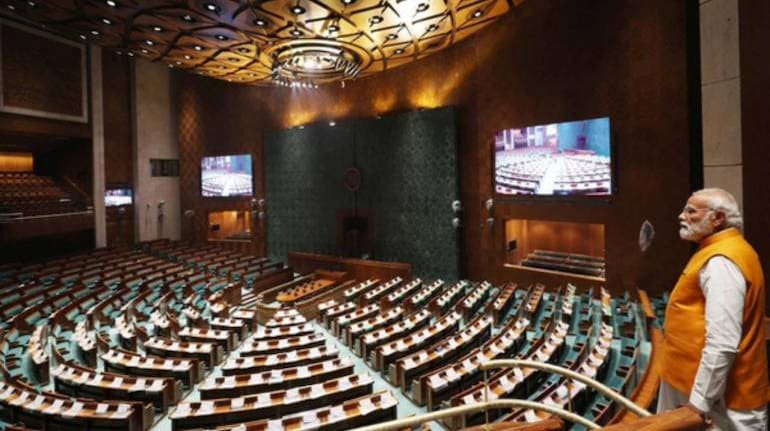



The Rajya Sabha poll in Uttar Pradesh appeared to be a straightforward affair until the BJP surprised everyone by fielding its eighth candidate, Sanjay Seth, for the 10th Rajya Sabha seat in the state.
The state will send 10 members to the Upper House in the elections scheduled to take place on February 27.
Who is Sanjay Seth?
Seth, a real estate developer from Lucknow, began his career with the Samajwadi Party (SP). In 1985, he established SAS Hotels and Properties Private Limited, later renamed the Shalimar Corporation. His company undertook several projects, including the development of the Dr BR Ambedkar Gomti Vihar Park (Part-1 and Part-2) during the BSP regime between 2007 and 2012.
He shared a close association with the party founder, Mulayam Singh. In 2015, Seth was nominated by the SP as a candidate for Member of the Legislative Council (MLC). However, his nomination was rejected by the then Uttar Pradesh Governor, Ram Naik. Subsequently, the SP founder sent him to the Rajya Sabha. Amid internal conflicts within the SP, Seth forged a close relationship with Akhilesh. Moreover, he was reportedly instrumental in facilitating the collaboration between the BSP and the SP prior to the 2019 Lok Sabha elections.
With the BJP coming to power in the state, Seth turned to it. He soon became close to the BJP top leaders including Amit Shah. Eventually he resigned as the SP member from Rajya Sabha in 2019 and was re-elected on the BJP ticket to the Upper House.
How will Seth’s nomination help numbers?
With the Uttar Pradesh Assembly presently comprising 399 MLAs, and four seats lying vacant, each candidate in the Rajya Sabha polls from UP will necessitate a minimum of 37 votes to secure victory under the proportional representation system. The BJP commands a total of 252 MLAs, with its NDA partners contributing an additional 34 MLAs, inclusive of 13 from the Apna Dal, nine from the RLD, six each from the NISHAD Party and the Suheldev Bharatiya Samaj Party. Additionally, the support of Jansatta Dal Loktantrik is anticipated in favor of the BJP.
Alliances led by the BJP and SP can secure the election of seven and three candidates, respectively.
If the BJP secures all 36 votes from these allied parties, its total vote count would reach 288. However, to ensure the election of its eighth candidate, the party would require 296 votes. In the scenario where two Congress MLAs vote for the SP candidates, it would increase Akhilesh’s party's tally to 110. Nevertheless, the SP would still be short by one vote.
The SP is already in a tough spot as the leader of the Apna Dal (Kamervadi) faction, Pallavi Patel, declared she will not vote in the elections. She accused SP of neglecting the PDA- Pichde (backwards), Dalits and Alpasankhyak (minorities) communities. Akhilesh had pitched the PDA outreach as part of SP's Lok Sabha campaign. With Patel withdrawing, the SP is likely to have a shortfall of four votes.
By fielding Seth as its eighth candidate, the BJP put the SP in a spot and paved the way for cross voting.
Discover the latest Business News, Sensex, and Nifty updates. Obtain Personal Finance insights, tax queries, and expert opinions on Moneycontrol or download the Moneycontrol App to stay updated!
Find the best of Al News in one place, specially curated for you every weekend.
Stay on top of the latest tech trends and biggest startup news.